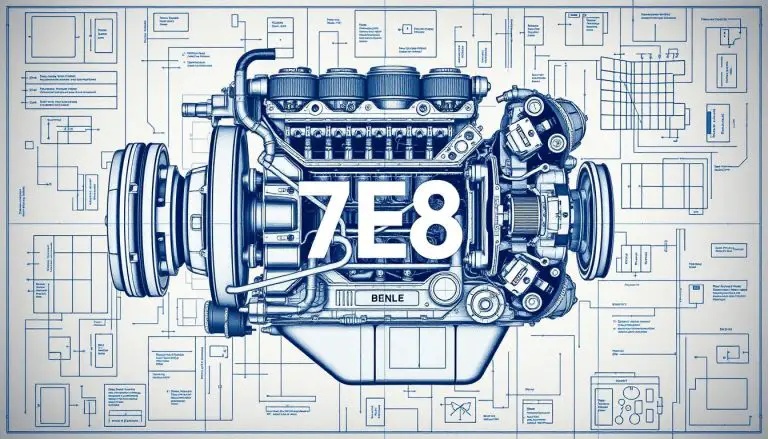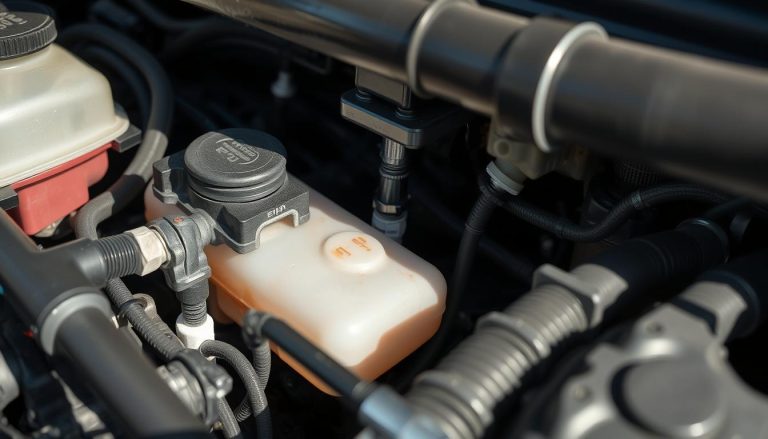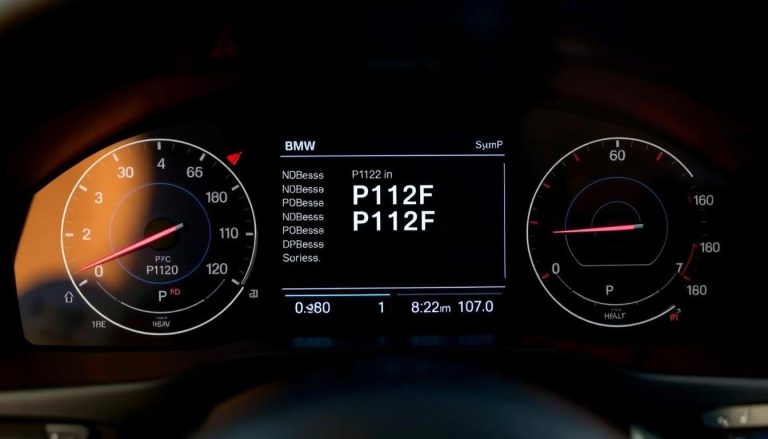If you’ve ever found yourself staring at the check engine light, among the many codes that could pop up is the P0149 code—an indicator of a fuel timing error. But what does this actually mean for your vehicle? Understanding this code is crucial not only for diagnosing issues but also for keeping your car running smoothly.
In this guide, we’ll uncover everything you need to know about the P0149 code: its symptoms, causes, and how to resolve it effectively. Let’s dive in!
Key Takeaway
The P0149 code signals a fuel timing error in your vehicle. This issue can impact engine performance and efficiency.
Recognizing this code early is essential for avoiding more significant problems down the road. Ignoring it might lead to decreased power, poor fuel economy, or even potential engine damage.
Understanding how the fuel system operates is key. A malfunctioning component can throw off the timing, affecting combustion and overall performance.
Addressing a P0149 quickly not only ensures a smoother ride but also extends the life of your car. Keeping an eye on diagnostic codes helps maintain optimal vehicle health over time.
What does the P0149 code mean?
The P0149 code is an OBD-II diagnostic trouble code that indicates a fuel timing error. This typically means there’s a problem with how the fuel injection system delivers fuel to the engine.
When your vehicle’s computer detects irregularities in timing, it triggers this specific code. The issue could stem from various components within the fuel system or even related sensors.
Fuel timing precision is crucial for optimal engine performance. If it’s off, you may experience issues like poor acceleration or stalling.
Understanding this code can help pinpoint underlying problems affecting your vehicle’s efficiency and overall drivability. Addressing a P0149 promptly ensures that your car runs smoothly while preventing potential damage to other critical systems.
What are the common symptoms of a P0149 code?
When the P0149 code appears, your vehicle may exhibit several telltale symptoms:
- A noticeable decrease in engine performance. You might feel sluggish acceleration or stalling during operation.
- Inability to start the vehicle
- Drivers often report increased fuel consumption as well. When the timing isn’t right, the engine struggles to run efficiently, leading to wasted fuel and frequent trips to the gas station.
- Check Engine Light activation is also prevalent with this code.
- The vehicle may enter limp-in mode
- Excessive smoke from the exhaust
What causes a P0149 code?
Several factors can trigger a P0149 code:
- One primary cause is the malfunctioning fuel injection timing, which disrupts the engine’s performance. When the timing is off, it can lead to inefficient combustion.
- Faulty fuel pressure sensor
- Another common issue arises from wiring problems. Damaged or corroded wires connected to the fuel system can interrupt communication between components.
- Malfunctioning fuel pressure control actuator
- Fuel system leaks
- Software glitches in the ECU could interfere with proper function and result in a P0149 code appearing on your dashboard.
How is a P0149 code diagnosed?
To diagnose a P0149 code, a technician starts with an OBD-II scanner. This device reads the trouble codes stored in your vehicle’s computer system.
Once the code is retrieved, they check for any accompanying codes that might provide further insights into the issue. Each code can tell a different part of the story.
Next, visual inspections are crucial. The technician examines wiring and connectors related to fuel timing sensors for damage or corrosion.
They may also monitor real-time data from engine sensors while running diagnostic tests. Observing fuel pressure and timing adjustments helps pinpoint discrepancies.
They could perform additional tests on components such as the injector control module or camshaft position sensor if necessary. Only through this meticulous process can accurate conclusions be drawn about resolving the P0149 issue effectively.
Is the P0149 code specific to certain car makes or models?
The P0149 code is not limited to specific car makes or models. It can be encountered in a wide range of vehicles, particularly those equipped with diesel engines.
This error generally indicates an issue with the fuel timing system, which is crucial for optimal engine performance. As such, any vehicle that relies on precise fuel delivery can potentially trigger this code.
While it appears more frequently in certain brands like Ford and GM, other manufacturers are not exempt. The complexity of modern engine systems means that variations exist across different platforms.
Always consult your vehicle’s service manual for detailed insights into how the P0149 code relates to your specific make and model. Understanding this context can aid significantly during diagnostics and repairs.
Can I continue driving with the P0149 code?
Driving with a P0149 code is not advisable. This trouble code indicates a fuel timing error, which can significantly affect engine performance. Ignoring it may lead to further complications over time.
If you notice rough idling, reduced power, or poor fuel efficiency, these symptoms might worsen while driving. The longer you continue without addressing the issue, the more damage could occur to your vehicle’s components.
Additionally, there’s potential for increased emissions if the fuel timing isn’t corrected promptly. This can lead to failing inspections and additional repair costs down the line.
Always prioritize safety and vehicle integrity when dealing with diagnostic trouble codes like P0149. If this code appears on your dashboard, it’s best to have it checked out by a professional mechanic as soon as possible.
How do I fix a P0149 – Fuel Timing Error?
Fixing a P0149 code involves several steps. Start by checking the vehicle’s wiring and connectors linked to the fuel injection system. Look for any signs of damage or corrosion that could disrupt communication.
Next, inspect the fuel pump and timing mechanism. Ensure they are functioning correctly since issues here often trigger this error code.
You may also need to test the camshaft and crankshaft position sensors. A malfunction in these components can lead to inaccurate readings, causing a fuel timing error.
If necessary, replace faulty parts like sensors or damaged wiring. After repairs, clear the code using an OBD-II scanner and take your car for a test drive to ensure that everything is working as it should.
Regular maintenance helps prevent future occurrences of such errors, so keep up with scheduled checks on your vehicle’s systems.
How much does it cost to fix a P0149 code?
The cost to fix a P0149 code can vary widely based on several factors. On average, you might find yourself spending anywhere from $100 to $1,500.
Labor costs often make up a significant portion of the total expense. Depending on your location and the shop’s hourly rate, labor could run between $75 and $150 per hour.
Parts are another consideration. If the issue stems from a faulty fuel injector or timing sensor, those components may range from $50 to several hundred dollars each.
If your vehicle is under warranty, some or all of these costs might be covered. Always check with your dealer for specifics about what’s included in your coverage plan.
Don’t forget that diagnosing the problem itself can incur additional fees if you’re not equipped to do it at home.
Are there any other codes that may be related to a P0149 code?
When dealing with the P0149 code, it’s important to recognize that this issue may not exist in isolation. Several other diagnostic trouble codes (DTCs) can appear alongside the P0149 code, indicating more complex problems within your vehicle’s fuel management system or engine control unit.
Codes such as P0135 and P0141 relate to oxygen sensor malfunctions, while codes like P0190 through P0193 signify issues with fuel pressure sensors. Each of these can affect how your engine operates and potentially lead to a misreading of fuel timing. Other relevant codes include those related to crankshaft position sensors or camshaft timing errors, which could also interfere with ideal performance.
If you experience a combination of these codes along with the P0149 error, it’s advisable to address them promptly as they might stem from underlying issues that could worsen over time. This comprehensive approach will help ensure reliable function and longevity for your vehicle.
Always consult a qualified mechanic who can accurately diagnose and resolve any faults linked to the various DTCs present in your car’s computer system. Staying proactive about repairs is crucial for maintaining optimal driving conditions and preventing further complications down the road.


